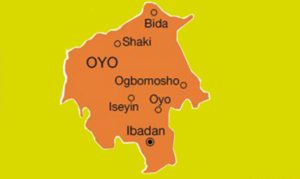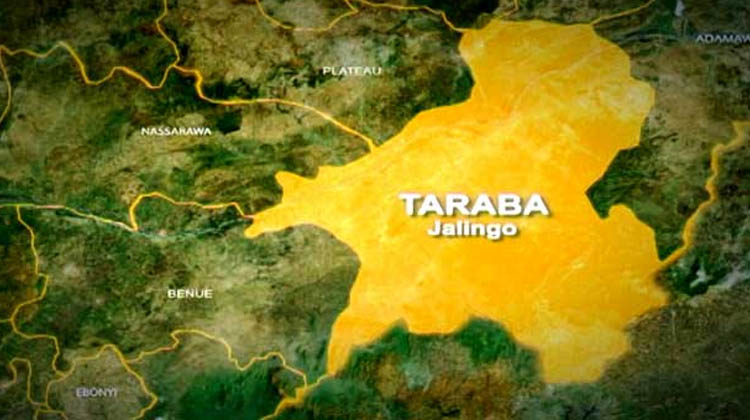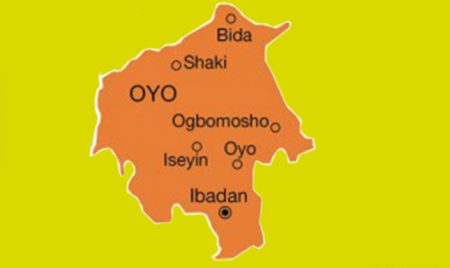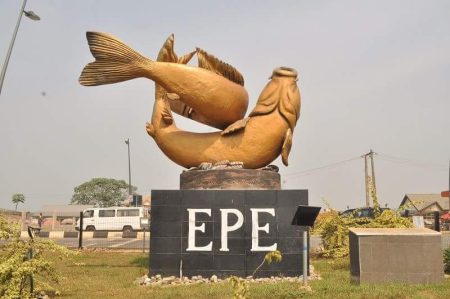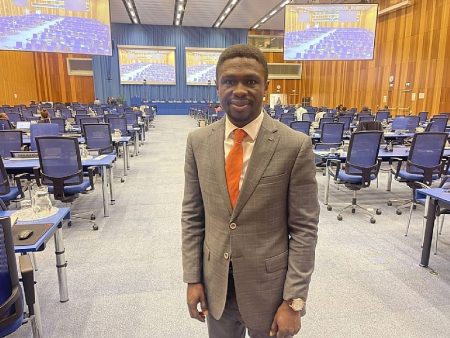The vanishing of Zip Town, situated on the banks of the River Benue in Taraba State, Nigeria, stands as a stark testament to the devastating power of natural disasters and the tragic consequences of governmental neglect. In August of the previous year, the ground beneath Zip Town gave way, not in a sudden, dramatic collapse, but in a slow, silent surrender to the river. Homes, schools, clinics, mosques – the entire fabric of the community – crumbled into the Benue, leaving behind no visible trace of its existence. The river, once a source of life and livelihood, became a watery grave for the town’s physical structures and a constant, painful reminder of the community’s loss.
The former residents of Zip Town now reside in a makeshift camp of thatch houses, displaced in their own ancestral land. The scene is one of utter destitution, devoid of any signs of government aid or intervention. No relief tents, emergency medical units, or even basic necessities have been provided. The silence is broken only by the roar of the silt-laden river, a sound that now echoes the community’s sense of abandonment and despair. Elders like Gambo Saidu, who lost a substantial cement house, stand barefoot amidst the flimsy shelters, symbols of the community’s utter devastation. Their pleas for help, for recognition of their plight, seem to fall on deaf ears.
The catastrophe that befell Zip Town was not a typical flood event. Residents believe it was a landslide or soil subsidence, exacerbated by years of unchecked erosion. The warning signs, including cracks in homes and shifting terrain, were evident long before the disaster. Gambo Saidu, brother of the deceased village head, recounts how these signs were reported to the local and state governments, yet no action was taken. This inaction underscores a tragic pattern of neglect, where warnings are ignored and communities are left vulnerable to preventable disasters. The story of Zip Town becomes a chilling example of the human cost of bureaucratic indifference.
Mallam Saidu Ahmadu Zip provides a harrowing account of the town’s final hours: houses trembling, trees leaning precariously, and cracks widening before entire structures began their descent into the river. The chaotic scenes of families scrambling to evacuate, the screams of terror, and the final, silent disappearing act of the town paint a picture of unimaginable horror. The personal tragedies are numerous and heartbreaking. Bashiru Gabdo, who invested heavily in building his home, now resides in a thatch hut. The loss of property is compounded by the psychological trauma of witnessing their world literally collapse around them. The river, once a familiar landmark, has become a symbol of loss and a constant reminder of their erased history.
The tragedy’s impact extends beyond material possessions. Husaina Muhammed recounts the terror of the morning her family’s home began to shake, forcing them to flee with nothing but the clothes on their backs. Her husband, traumatized by the event, is described as a shell of his former self, staring blankly at the river that consumed their past. The river itself has shifted course, further obscuring the physical remnants of Zip Town and creating a tangible representation of the community’s dispossession. Ya’u Baba Tsoho’s gesture across the water encapsulates the surreal reality: where Zip Town once stood, there is only water and silence.
Micah Dantala Isoko, the village scribe, paints a bleak picture of the current situation: a community reduced to thatch shelters, children deprived of education, and pregnant women forced to undertake perilous journeys for medical care. The nature of the disaster itself remains unclear – landslide, erosion, earthquake, or a combination of factors. The uncertainty adds another layer of complexity to the tragedy, highlighting the lack of investigation and official acknowledgement of the event. Saadu Danyaya’s words, “The whole town just vanished,” capture the bewildering and absolute nature of the loss. The absence of any official response, emergency declaration, or even a visit from government representatives amplifies the sense of abandonment and underscores the systemic failures that contributed to this tragedy. The silence from official channels is deafening, adding insult to injury for the displaced community.



